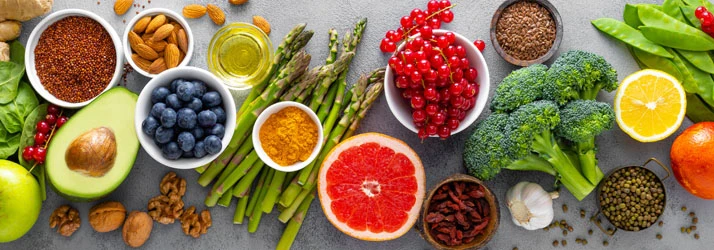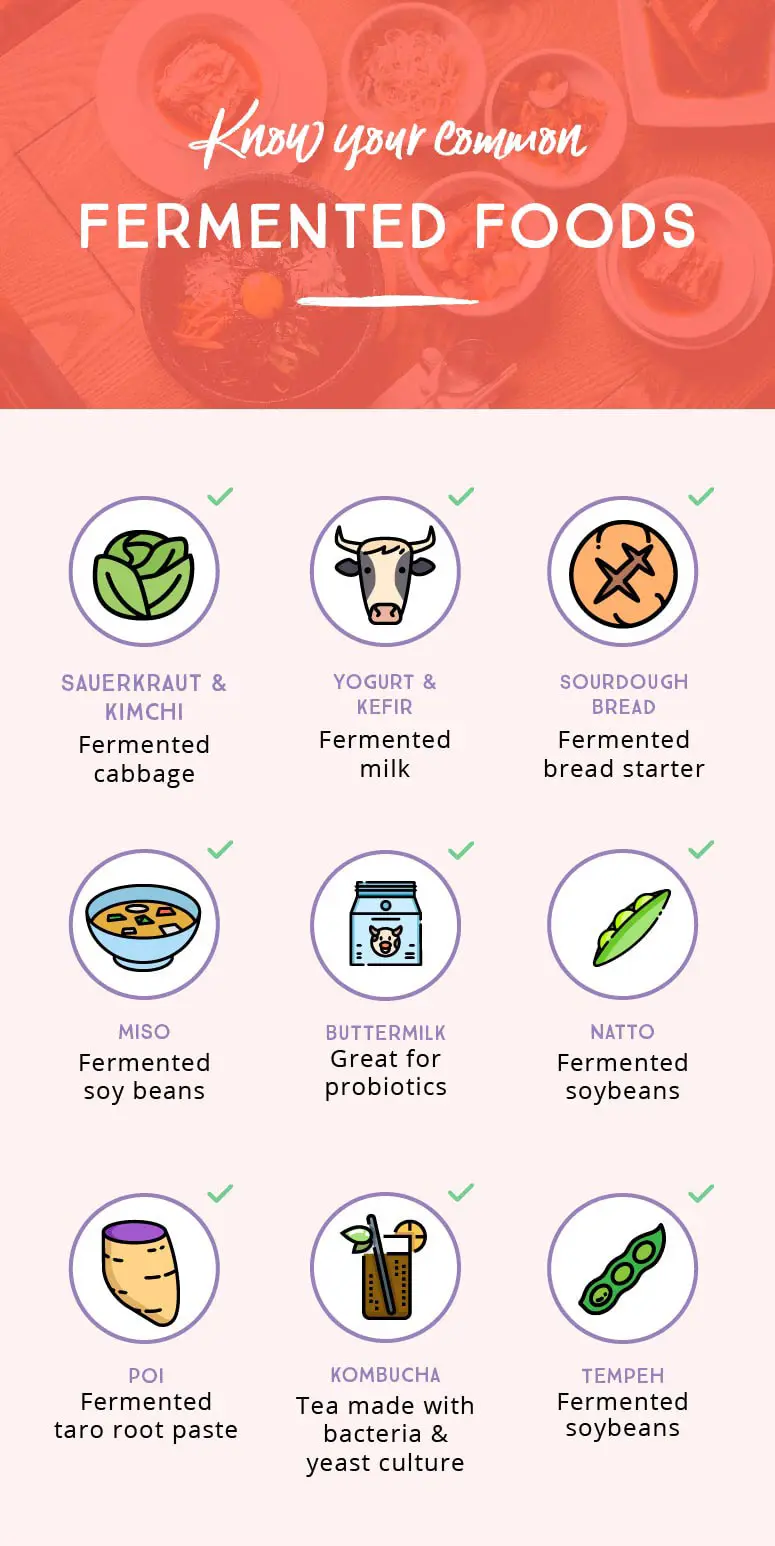Eating fermented foods can improve your health In Lombard IL

Improve Your Health With Fermented Foods In Lombard IL
Fermentation is not something that is usually associated with good health. In fact, if you mention fermentation as a Lombard IL chiropractor, most people tend immediately to think about alcohol, and they wouldn't be wrong. Both beer and wine are produced using a process of fermentation. The next top-of-mind thought would be that food that has passed its sell-by-date might have become fermented. It's what happens when you open a bottle and it pops with trapped gas, causing people to shake their heads at the process of fermentation and spoilt food.
Nonetheless, gastrointestinal (GI) tract and digestion experts are proving beyond doubt that fermented foods play a vital part in preserving the health of the gut. Some of the most everyday items, such as bread and cheese, as well as delectable items such as chocolate, could not be produced without a process of fermentation. So ancient is this process that folklore maintains that the Great Wall of China was built on brown rice and fermented cabbage (known as kimchi)!
With much current interest in fermentation, what is it, and how does it benefit your health? Why is it being as touted as 'almost the beginning of digestion'? And, if it is so important, how can you get more of it for optimal health?
The process of fermentation
Fermentation is when microorganisms (organisms so small they can be seen only through a microscope) such as bacteria or yeast convert carbohydrates into smaller molecules to form alcohol or organic acids. This occurs under anaerobic conditions (which means that there's no oxygen present).
Alcoholic fermentation results from the metabolism of sugars and starches, which are broken down into carbon dioxide and ethanol by using these bacteria and yeast. This is the type of process that produces bread, as well as beer and wine. After glucose glycolysis, the process can go further and convert lactose into lactic acid. This is very important to those who are lactose intolerant, and will be discussed in more detail later.
Humans discovered centuries ago that fermentation would allow food to be used for longer periods of time. For example, when fruit juices 'spoiled' and were considered to have gone off, the first incarnations of wine began! These days, the fermentation process is better understood, as well as the many benefits that can be derived. In some cases, even antibiotics and drugs are prepared through this process. Cortisone, for example, is prepared by the fermentation of a plant steroid.
How fermentation helps digestion and health
As far back as the 19th century scientists started to study microorganisms in people's GI tracts. They found that the microorganisms present in healthy people were different from those who were sick. This was the beginning of the understanding of 'probiotics' - now know to be essential for good digestion and health. The word is derived from the Greek 'for life' which underlines the importance of these bacteria. It was then found that fermented foods contain a large supply of natural probiotics.
These are some of the ways that eating fermented foods assist your body:
1. Improving overall GI tract health
When you digest food, having certain enzymes available is essential. If you've been taking antibiotics, or even if you're eating the wrong foods, you will find that the good bacteria in your gut are destroyed along with the unhealthy bacteria. Fermented foods will help put your system back in balance. Also, lactic acid will reduce the pH in your gut, which will inhibit the growth of harmful bacteria.
Fermentation foods, filled with probiotics, are easier to digest, which saves your body energy, along with the benefit of having additional vitamins and minerals released so that you can assimilate them. The fact that fermentation is a healthy way to preserve food is also much better for you than having artificial preservatives added.
2. Strengthening the immune system (much of the immune system lies in the gut)
By including more fermented foods in your diet and by improving your digestion and absorbing more nutrients, you could stave off liver disease, improve arthritis, and prevent inflammatory bowel disease.
Liver disease is often caused by alcohol, but there is also non-alcoholic fatty liver disease that's caused by a buildup of extra fat in liver cells. By conducting clinical trials with yogurt (a fermented food), a significant decrease in total cholesterol occurred, which was considered helpful in managing liver disease.
Arthritis is usually caused by inflammation of joints leading to stiffness, swelling, and pain. Fermented foods have been shown to improve this condition. Fermented milk has also been seen to reduce inflammation in the gut and bowel, so helps with abdominal pain, bloating and constipation. Those suffering from Crohn's disease could thus also benefit from fermented food.
3. Enhancing digestion so that nutrients are better available for absorption
The most valuable thing about fermentation foods is that they can be broken down more easily into nutrients that can be digested. You may be eating well, but might find that your body isn't able to process this food optimally. Anything which improves the 'bioavailability' of the minerals and vitamins in your diet will have a dramatically positive effect on your health, and fermented foods are particularly good at this.
4. Helping to decrease lactose intolerance
Dairy products are difficult for many individuals to digest, but fermented diary products are able to convert lactose (which is what many people can't tolerate) into lactic acid, which is usually easier to digest. Lactic acid produces its own bacteria that free amino acids and short chain fatty acids (SCFA). Absorbing these SCFAs is really beneficial in that they increase lactase in the small intestine and colon, and help keep a good pH balance.
5. Assisting with some allergenic reactions
As probiotics are found in fermented foods, this will help control digestive inflammation - which contributes to leaky gut and food allergies.
6. Reducing the risk of certain cancers
The secret is the presence of probiotics in fermented foods, as researchers believe that these cultures decrease the effect of chemical carcinogens. It is thought that this happens through detoxifying the carcinogens that are ingested. Also, because fermented foods improve the immune system and keep the bacteria populations healthy, this controls the harmful bacteria that may generate a carcinogenic reaction. It's also possible that fermented foods inhibit the growth of tumor cells, and help the body fight against the proliferation of cancer cells. Kimchi has been singled out as being particularly helpful in this regard (see fermented foods, below).
7. Suppressing H. pylori
H. pylori is a type of bacteria that has a detrimental effect on the GI tract. These germs enter the body and live in your digestive tract. The bacteria can cause ulcers in your stomach lining, and an infection can even lead to stomach cancer. It has been found that fermented foods can be very instrumental in suppressing these infections.

Which foods are fermented?
Many fermented foods are unfamiliar to western diets - sauerkraut is well known in places like Germany, and yogurt has become popular throughout the world. The fermentation process produces a signature sour taste that is strange to many western palates, but which shouldn't be confused with food that's 'gone off'. Developing a liking for these foods is definitely something you should try to acquire.
Fermented foods include:
Sauerkraut - this is made of finely shredded fermented cabbage. Apart from the normal benefits of fermented food, sauerkraut also produces vitamin C and protects the blood vessels. Cabbage is also a known cure for ulcers. Sauerkraut is actually a version of kimchi.
Kimchi - this is a traditional Korean dish made from pickled vegetables like cabbage or radish - some people call it the healthiest food on the planet. It will keep for weeks in the refrigerator because of its natural preservatives. Its spicy taste is complemented by its health properties as it contains vitamins, minerals, and dietary fiber. It is also believed to be very good for weight control. Kimchi is great for cleaning out your GI tract and helping your healthy bacteria to thrive. If you learn to enjoy the taste, it can become a great convenience food for snacking!
Yogurt - one of the most well known fermented foods, yoghurt contains a ready supply of probiotics. Unfortunately, many people buy artificially sweetened yogurt rather than eating naturally fermented yogurt. It's in this yogurt that you'll get the maximum benefit of calcium, zinc, vitamins, and probiotics.
Sourdough bread - to make this bread, you need milk and other ingredients that have been allowed to ferment before making the dough.
Miso - very popular in Japan, this is a paste made from fermented soy beans. It's often found in soup form and has a sweet but salty taste. It has excellent health properties and can help prevent diabetes, cancer, and hypertension.
Kefir - a fermented drink made from milk. Although this is a cultured dairy product, it reduces lactose intolerance symptoms. It has other outstanding properties in that it is believe to improve the immune system and lower cholesterol, while also having anti-carcinogenic properties.
Natto - another Japanese food made from soybeans, this is largely a breakfast dish in that country. It's considered to be a natural blood thinner.
Poi - a fermented paste made from tarot root
Buttermilk - another good source of probiotics.
Tempeh - popular in Indonesia, this can be described as a cake made of fermented soybeans. Clinical research showed that eating tempeh for about 60 days had a significantly positive effect on tuberculosis sufferers.
Kombucha - this is a sweetened tea found in Russia, that is cultured from bacteria and yeast. It has excellent health properties that reduce blood pressure, protect against cancer, and is generally good at helping the body to detox.

How to get these foods in your diet
It's difficult sometimes to know which foods are fermented as foods are not usually labelled this way. A good tip is that 'pickled' foods are usually fermented. Also, if food is said to contain probiotics, they're probably fermented.
Even if you know that including kefir or miso in your diet is good for you, adding them into your weekly meal plan can be a bit more challenging. The taste of fermented foods - even a well-known supermarket item like sauerkraut - may seem a bit exotic or unfamiliar.
It's advisable not to overdo it in the beginning, particularly when you're trying to develop a taste for something unfamiliar. If you introduce fermented foods gradually you won't be turned off too quickly.
Manufacturers are attempting to ease the western diet into products such as kefir by producing flavors such as strawberry that are more acceptable tastes. As with yogurt, just be careful that you're not falling into the trap of eating 'good' foods that become laden with harmful additives. If these foods are pre-packaged, such as add-water miso soup, you might again be missing out on the best benefits of these foods.
Likewise, make certain that the sauerkraut you're eating is properly fermented. Sometimes it's made with vinegar so you get the illusion that its been fermented when the cabbage actually isn't. To be sure, look for sauerkraut made correctly from cabbage, water and salt - there shouldn't be any vinegar on the label.
Given the many benefits of eating these fermented foods, it's definitely worth the effort of trying to incorporate them into your diet. The immune-boosting probiotics and the improvements to your digestive system will make you glad you included them on your shopping list.
If you're ready to get help with your health, contact us at the BrightLife Clinic - Lombard today to schedule an appointment.
OFFICE HOURS
Monday
9:00am - 6:00pm
Tuesday
2:00pm - 6:00pm
Wednesday
9:00am - 6:00pm
Thursday
2:00pm - 6:00pm
Friday
9:00am - 1:00pm
Saturday
9:00am - 12:00pm
Sunday
Closed
BrightLife Clinic - Lombard
442 E Roosevelt Rd
Lombard, IL 60148




